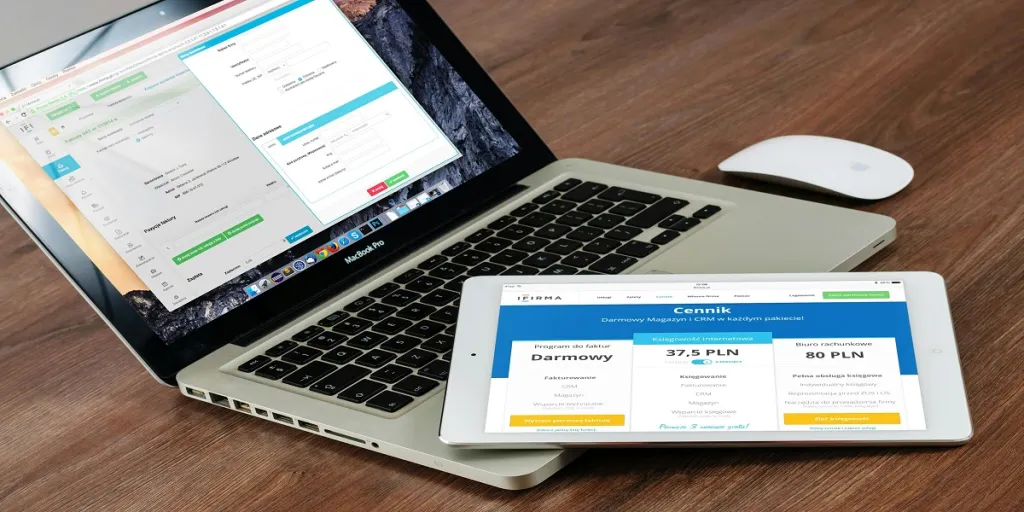Digital payments have altered our impression of online purchases in today’s fast-paced ecommerce industry. Contactless payments, virtual wallets, and applications that help you organize your funds have all affected the development of current POS systems.
These breakthrough payment solutions supply users with unrivaled convenience, security, and speed, causing better shopping experiences, seamless conversions, and happier customers. Clients complete a purchase in just a few clicks thanks to POS systems, eliminating the need to go through a lengthy procedure before eventually anticipating the product to be delivered.
In ecommerce, POS systems are a must-have tool that not only speeds the checkout process but also handles security, and inventory control, all while luring new busy buyers to your web store.
Setting up an appropriate payment method may appear complicated at first, but choosing the right financial infrastructure and processing solution may help you cope with numerous issues. In this blog, we will break down the basics of POS systems, as well as recommend the Top-10 POS systems that should be a good fit for your business.
Contents:
What’s a retail POS?
Retail POS basic types
Why you need POS for retail
Top 10 POS systems for retail
Retail POS custom software development
What’s a retail POS?
A retail POS (Point of Sale) system is a software and hardware combination used to manage transactions and sell items. Consider it a location where buyers purchase things and sellers handle sales, inventory, and other business-related tasks.
POS simplifies the sales process, making it easier to track revenue, give precise statistics, interact with other points of sale and payment gateways, and, of course, increase customer pleasure.
Goes without saying that, as a merchant, you thoroughly analyze your consumers’ desires and cater to them. Your main focus is to offer the most practical, pain-free experience possible, developing credibility, and generating new visitors, right? Purchasing a point-of-sale system is an excellent way to streamline operations and invest in your business’s future success.
In fact, having a POS system that meets all of your fundamental demands is no longer a benefit, but rather a must for keeping your business up and running. Modern POS systems provide many more capabilities that will not only make your life simpler in terms of management, but will also assist you in maximizing the full potential of your organization and achieving rapid development.
In the context of ecommerce, the last thing you want is an abandoned cart situation, so delivering an effortless and hassle-free shopping experience that will motivate them to come back and, even better, recommend your website to a friend, is your duty. This is why a well-established POS system to ensure that transactions run smoothly, quickly, securely, and without delays, is a crucial point to check off.
Retail POS basic types
Counter POS systems
On-premise POS systems, as they are often known, are designed primarily for retail firms with physical storefronts. The gear often includes cash registers, barcode scanners, receipt printers, and touchscreen monitors and is often found near the cashier’s desk. They are linked to the store’s main server, enabling for fast information sync and secure payment processing.
Tablet POS systems
One of the most popular options for those who prefer simplicity, those who would rather not buy a new cash register. To take advantage of a tablet POS system, you must first have an iPad or an Android tablet.
Many of these systems are “free” in exchange for using a certain credit card processor, while others require a monthly fee in exchange for giving you more freedom to choose your own credit card processor. It’s possible that many of them can hold tablet computers, cash registers, and barcode scanners. They are also well-known for their user-friendliness and sleek appearance.
Card and chip reader POS systems
This technology is often referred to as EMV (Europay, Mastercard, Visa) POS systems. Mostly famous for processing payments with integrated microchips in credit and debit cards. EMV POS systems often feature card scanners that can scan and validate the card’s chip, providing additional protection for your purchases.
Cloud-Based POS System
Cloud-based POS systems are those that run entirely online, or in the cloud. The most significant benefit of this form of POS system is that it can be accessed via practically every device that is connected to the internet. They are often billed on an ongoing basis and include all of the features you may require.
Multichannel
Multichannel POS systems are ideal for individuals who wish to sell through an array of channels, including online, in-store, newsletter, and more. These systems support administrators in reaching out to customers, tracking sales, managing inventories, and encouraging customer loyalty.
With the importance of generating income via several channels and reaching out to prospective customers wherever possible, multichannel POS systems are the way to go.
Why you need POS for retail
Overall, the POS benefits are obvious: you will immediately notice a shift in the way you operate and overall working procedure. Let’s figure out some of the most important ones:
- Improved customization: the majority of POS systems may be adapted to your company’s demands, making your day-to-day operations go more smoothly.
- Increased volumes: as long as you want your firm to expand, the POS system will ensure that all transactions are dealt with and completed effectively.
- Integration with the website: You can expect that the information on the website is immediately upgraded and synced, no need for mutual tracking and record.
- Time management: As a business owner, you have a lot on your plate. Allow your POS system to handle at least certain activities like inventory management, transaction processing, and more.
- Integrated bonuses and loyalty programs: The POS system will ensure that each transaction is accurately counted and that the rewards or loyalty program benefits are applied to the selected transactions so that you won’t be waiting any longer for your clients to make another visit.
- Safety, security, and privacy: The three cornerstones of a successful transaction, and they are unquestionably demanded by your consumer. Most POS systems protect you against leakage and potential fraud.
- Reports and analytics: If you’re wondering, “How did I perform last month?” you can simply go to your POS system’s reports to examine that data, analytics, and trends, and make wise choices for your company’s future.
Top 10 POS systems for retail
| Pros + | Cons – | |
|---|---|---|
| Square | 1st Easiest To Use in Retail POS software on G2 Includes a built-in offline mode Provides instant payments (for a fee) Forever-free plan available Enhanced reporting tools and inventory features in Plus plans | Free plan has limited functionality Windows, Blackberry, and Amazon Fire devices aren’t supported Limited customer support hours (from 6 AM to 6 PM Pacific time zone) High processing fees due to the absence of a monthly fee |
| Shopify | Easy-to-use interface Customizable mobile checkout Advanced POS plan available 14-day free trial Accepts partial payments Fraud analysis for each transaction | Restricted inventory features in the free plan Limited offline payment options Does not offer a hardware Advanced plans can be expensive No free plan Does not support many countries |
| QuickBooks | One time purchase QuickBooks Desktop users can connect POS data with their table of accounts, eliminating the need for data entry by hand. The system can sync inventory across several sites in addition to providing real-time inventory changes. As a consequence, you can monitor what sells best and when, and utilize that data to set your personnel scheduling requirements. | Free chat assistance only from 6 a.m. to 6 p.m. Monday through Friday, PT; professional help plans are $79 per month. Only integrates with QuickBooks Desktop. Rather expensive |
| Lightspeed | 5th Easiest To Use in Retail POS software on G2 Loyalty bonuses can be provided Contactless payments Fast and painless installment Orders can be traced across different locations | No free plan or a demo version Requires and iPad or an iPhone to use all the features |
| Stripe | There are no monthly, setup, or termination fees. Provides a variety of card readers with varying features and costs. | No POS software or typical POS functionality included. Programming and development knowledge is most likely required. |
| Clover | Intuitive and completely use-friendly Includes a big amount of applications and add-ons Cost-effective in terms of pricing Rapid and hassle-free setup | No free plan or a demo version Prices may vary depending on the provider Sometimes ineffective customer support Overpriced online payment processing charges. |
| Korona | 4.7 star rating on G2 Strong inventory management systems with notifications for low stock levels or bad sales statistics No need to dedicate yourself for a long-term contract Pre-configured options to handle age-limited items | Connects only with WooCommerce The reporting feature learns your behavioral patterns, so first months data and analytics might not be reliable. |
| Epos Now | Free trial available Easy to use 24/7 free business сritical support | Long-term contract |
| PayPal Zettle | First card reader is just $29 Accepts multiple currencies No monthly fees No long-term commitment Low initial costs User-friendly | No add-on features available Limited integrations Revenue can only be transferred to your PayPal account and only then to your bank account 1.5% on foreign transactions |
| eHopper | No contract is needed Offers split payments Partial payments are available | Support not included in the free plan If you decide to sign a contract, there’s no refund in case you are not satisfied with it. |
Square POS
Square has a cloud-based POS software that is currently available on iPads, Square Register, and Square Terminal. Under its parent company (Block) it provides a wide range of POS software and hardware solutions. Its POS plans are focused on retailers and ecommerce businesses.
Unlike many other POS systems, Square charges depending on sales volume, which is fantastic for newcomers. It has inventory management, reporting, analytics, barcode scanning, and more. Square also manages shift scheduling, permissions, activity hours, and statistics for employees.

Shopify POS
Shopify POS is an add-on to Shopify’s industry-leading ecommerce platform. Currently, it is only available to Shopify ecommerce sellers. Shopify’s point-of-sale software has shown itself to be an invaluable asset for a wide range of omnichannel capabilities.
Overall, Shopify needs no introduction in the world of digital commerce. They did a good job in the development and implementation of its point-of-sale (POS) system, surpassing a majority of their competitors. So, a POS right from ecommerce trailblazer, isn’t it a good-fit solution to take note of?
Shopify’s mobile app can now accept tap to pay. It also introduced a mobile POS terminal called Shopify Go to power on-the-go sales and replaced the Lite plan with the Starter plan.

QuickBooks Point of Sale
Another great point-of-sale (POS) system, this one tailored to the needs of existing QuickBooks Desktop users. Its single-payment availability is enticing since it eliminates concerns about entering into and maintaining lengthy commitments.
Despite some reviews indicating that QuickBooks POS may not be the most suitable choice for customization, it has been ranked among the top three retail POS systems and has been recognized as the seventh easiest to use in the retail POS software category by G2. In order to make an informed purchase decision, it is essential to thoroughly assess your requirements for a point-of-sale (POS) system.
QuickBooks POS system has the option to create price tags and receipts. This enables companies to include personalized touches, such as seasonal wishes such as “Merry Christmas,” on receipts for their consumers.

Lightspeed Retail
Lightspeed is a cloud-based POS platform that provides features and functionalities to make running your business easy. It is well-known for its innovative inventory management, machine-driven purchase orders, multi-location management among other beautiful things. This is why it is one of the leading providers when it comes to ecommerce.
Besides, there is a possibility to include multiple integrations, that may benefit your conversions and increase customer satisfaction. Some of the integrations you may benefit from include: appointment scheduling, marketing, inventory management and customer service. Many retailers choose to integrate by using Mailchimp, Lendio, QuickBooks and Stripe.
Those who are selling both in-store and online can utilize multiple omnichannel options. You can hit two birds with one stone by combining retail POS with ecommerce functionality. It lets you concentrate your inventory, earnings, and analytics on a single SEO-optimized backend with embedded mobile functionality.

Stripe Terminal
Stripe has built an excellent track record as a trustworthy online payment processing solution, and it now provides Stripe Terminal. You may use Stripe Terminal to connect Stripe payments into your existing in-person purchase process or to include payments made in person into your present mobile or web-based app.
If you are tech-savvy, you may utilize Stripe’s software development package to combine your payment processing with numerous hardware options, or you can use one of Stripe’s no-code POS partners, some of which are free.
However, if you handle a substantial percentage of your company in person and want an extra simple payment processing solution, or if you expressly prefer a ready-to-use POS system, you may want to look into other options.

Clover
Perhaps, one of the easiest POS systems when it comes to usability is Clover. This is because it has many different versions, apps, add-ons, and configurations to suit your business.
Clover is a great solution for you to improve customer management, and clients’ satisfaction and organize your sales in the best way possible.
You can buy Clover through different distributors, which means that things like price, contract details and support may vary.

Korona POS
Being another cloud-based POS system, Korona is designed to bring value to those who are aiming to become big game players. Hence, if you’re planning to challenge Amazon (who knows?), consider this a way to go.
While it has similarities with other POS software, its retail loss prevention capabilities stand out. This will save you from having to ship an order that did not have a successful transaction in the event of a delay or fraud. Despite the prevalence of such incidents whenever a website’s security is compromised, the Korona POS system guarantees that nothing of the kind will ever occur.
Apart from that, if you happen to have a physical store as well, Korona will manage both physical and virtual stores, which means that they will be working synchronically providing more data for you as a business owner.

Epos Now
Epos Now is an intriguing option since its onboarding and training supposedly only take 15 minutes. For those of you who don’t like hustle and bustle, ha?
One of the things that really distinguishes Epos Now POS system – it provides you with expert advice once it recognises some patterns or places for improvement.
Apart from being a great solution on its own, you may expand the functionality of Epos Now in a number of ways thanks to its ability to connect with other services and products.

PayPal Zettle
Zettle from PayPal is a perfect option for those who have many international clients since it supports over 130 currencies. Along with that, this POS system comes with other great features such as the ability to send invoices, accept manual transactions and receive introductory pricing on your first card reader.
In addition, if you are already a PayPal user, you’ll find it easy to get along with automating the processes between your account and the POS system.

eHopper POS
eHopper POS focuses on providing flexibility and transparency. There are a bunch of features you can benefit from (real-time reports, offline mode, inventory support, etc), while also getting some suggestions from the system itself.
Apart from that, companies residing in the U.S. may be eligible for free processing through credit surcharge and cash discount programs.
Keep in mind that each plan includes a maximum number of transactions that you can reach per month. In case you go above the limit, you’ll have to upgrade to a bigger package.

Retail POS custom software development
Although they are often used interchangeably, it is important to note that the terms “POS system” and “POS software” pertain to distinct components within a configuration.
- POS software manages operations on a computer, tablet, or mobile device. The software continually processes payments, updates inventory levels, generates sales statistics, and interfaces with other company systems like accounting and CRM software.
- POS System contains software and hardware including terminals, cash registers, barcode scanners, and more.
Though nowadays POS systems are adaptable and may use third-party applications, some firms may still need industry-specific, custom POS software. So, what are the advantages of bespoke retail POS software?
- Niche-specific functionalities: If your firm works in a niche sector, a typical POS system may not fulfill your needs, thus you need to personalize it. If you operate a beauty salon, consider adding an appointment scheduling option, which is not usually offered.
- Inventory tracking: If controlling inventory is your main reason for needing a POS system, consider software that can also handle orders, issue restocking reminders, etc.
- Compliance with industry standards: Some businesses have specific sales, financial, and legal requirements. Custom POS software can keep the firm legal.
- Adaptability: You may need to change your POS software if your company is growing fast and reaching its limit. This will prevent huge transaction volumes from delaying your organization.
- More integrations: Software updates might bring extra integrations to the system for certain businesses. POS systems may easily integrate CRM, accounting, and other applications.
- Tablet or mobile-based POS: If your company is mobile, use a tablet or mobile device instead of heavy equipment. To use it this way, your POS software will likely need to be modified.
- Offline Capabilities: If you’re worried about missing transactions if your internet connection goes down, consider adding improved offline capabilities that won’t let you know when you’re offline.
- Security: Protecting customers’ identity is your first priority. If your firm needs extra security, employ sophisticated security measures that monitor all transactions.
Source from Grinteq
Disclaimer: The information set forth above is provided by grinteq.com independently of Chovm.com. Chovm.com makes no representation and warranties as to the quality and reliability of the seller and products.





 বাংলা
বাংলা Nederlands
Nederlands English
English Français
Français Deutsch
Deutsch हिन्दी
हिन्दी Bahasa Indonesia
Bahasa Indonesia Italiano
Italiano 日本語
日本語 한국어
한국어 Bahasa Melayu
Bahasa Melayu മലയാളം
മലയാളം پښتو
پښتو فارسی
فارسی Polski
Polski Português
Português Русский
Русский Español
Español Kiswahili
Kiswahili ไทย
ไทย Türkçe
Türkçe اردو
اردو Tiếng Việt
Tiếng Việt isiXhosa
isiXhosa Zulu
Zulu